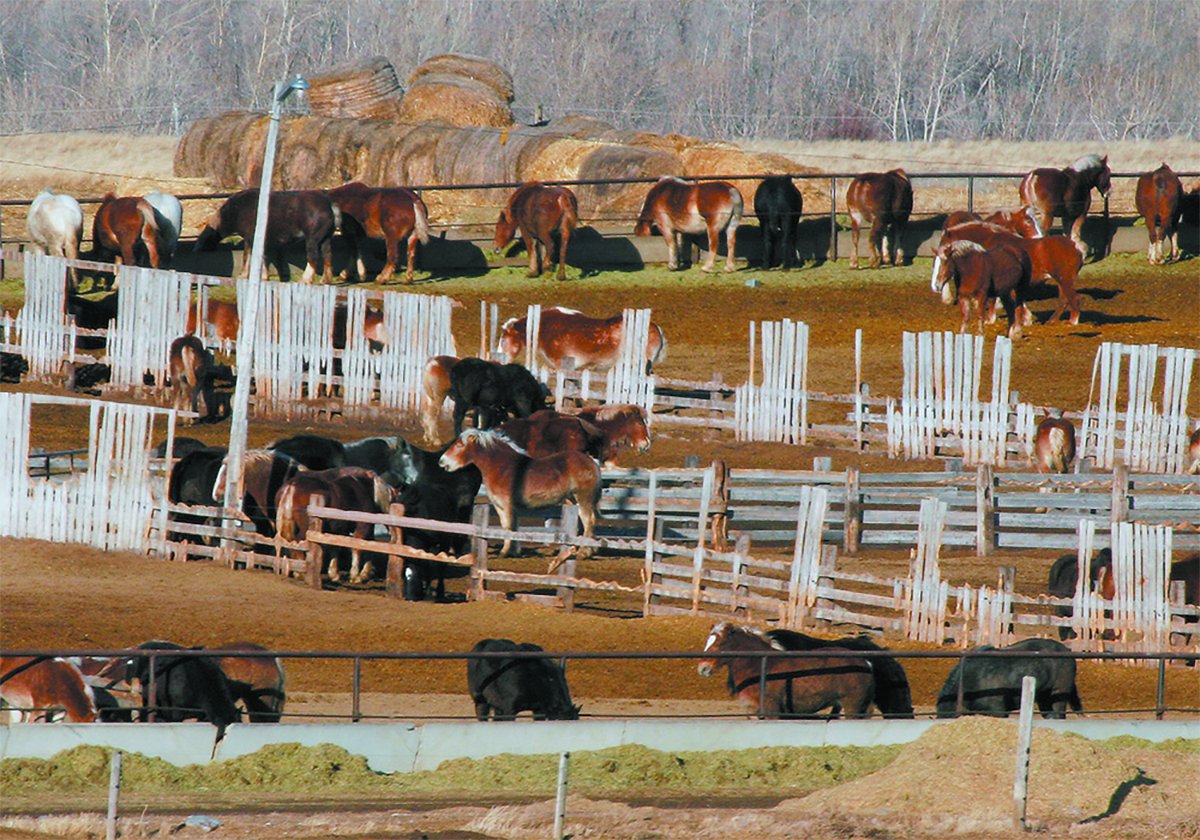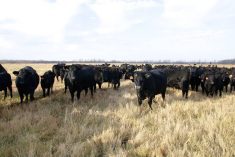With global supply issues, manufacturing issues and transportation or distribution issues, the words “back order” can strike fear in the hearts of producers and veterinarians.
The bigger a herd becomes, the more critical that veterinary product shortages become, so it’s critical to keep potential solutions in mind. Keeping an open line of communication with the local veterinary clinic will help.
On a world scale, Canada is small in terms of livestock, so new developments may not make their way into Canada right away. And, if there is a shortage somewhere else, Canada may not get its fair share.
Read Also

Canada’s slaughter horse industry lacks transparency
The lack of clear reporting and public access to data keeps the industry largely hidden, leaving questions about humane treatment and traceability unanswered.
I got nervous many times as a veterinarian if essential products such as key antimicrobials, vaccines, growth implants or dewormers were scarce or unavailable for extended periods.
Shortages are especially critical if they come at key times and may lead to over-use of other products. Regulatory bodies do check when essential products are unavailable and may provide concessions to make the product. This happened with local anaesthetic lidocaine in the last year.
Veterinarians are the first to hear about shortages and can seek alternatives. There are options for most major products and many generics are the same but have another trade name.
Vaccines may be lacking certain antigens or contain extra, but a veterinarian will know if that is critical to your situation.
Remember that with COVID vaccines for humans, we changed to many different vaccines with potentially better immune response. The same thing in general can be said for bovine vaccines.
There is a distinction between use of modified live vaccines versus killed vaccines but if timing is a concern, you may be able to change if availability or unavailability of product warrants it.
We hear about bacterial resistance to antimicrobials or resistance to anthelmintics or dewormers. This is sometimes geographically specific so make sure to follow the veterinarian’s lead. Vets and those in the pharmaceutical industry have a good handle on whether this is happening in the field.
I am sure we all use fewer antimicrobials than in the past through low-stress weaning and direct marketing of animals. This avoids the extra stress for animals from trucking and the commingling that occurs at auction markets.
Starting about now, you will no longer see advertising for antimicrobials or other prescription products in producer magazines and related publications. The idea is that such products require a prescription that should come from your herd veterinarian.
Hopefully your veterinarian will keep up with advances through contacts in the pharmaceutical industry.
Producers have always been good at sharing advice about recommended vaccinations. But rather than get that information wrong, check with a veterinarian about any new medications or treatments you’ve heard about to make sure the information is accurate.
Some products are approved in the United State but not in Canada, and even if approved here, withdrawal times may be different.
Some veterinary clinics are very brand loyal and may not realize that another pharmaceutical company has a product that improves cattle production in some way or is more convenient or improves animal welfare.
Veterinarians can be too busy to look into industry advances, and some may question the validity of research until they have used a product themselves.
Having a good veterinary-client relationship means you can openly discuss new products, ideas or management changes and get an informed response from your veterinarian.
Roy Lewis works as a veterinarian in Alberta.

















